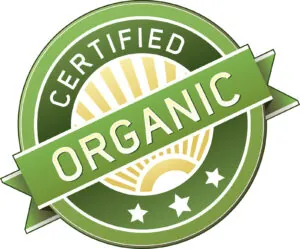Blog
How is Organic Food Different from Other Food?

Everyone wants to make the healthiest choices they can for their family, especially when it comes to the food they use to fill their plates. But as terms like organic, grass-fed, free range, and all natural have started to pop up on shelves and in coolers, many shoppers aren’t sure which to choose, if some are better than others, and if it is worth spending more money to buy something with a special label. With family budgets tight and everyone looking for ways to stretch their food dollar, it is more important than ever that you feel confident that you know what you are buying and that you are able to make the best possible choice at the lowest available cost.
To help, here is a basic breakdown of what some of the terms mean and basic information on what makes one pint of blueberries different from another so you can decide which pint is right for you.
What Does Organic Mean?
Organic, in this context, refers to how an agricultural product is grown, raised, and/or processed. It can be used in relation to produce, dairy, and meat products. In order for a product to be labeled organic, it must be grown, raised, and/or processed according to specific requirements and be certified as an organic product.
Organic crops must be grown separately from conventional crops and cannot have any modifications, like genetic alterations. Additionally, organic produce must be grown without the use of synthetic pesticides or fertilizers made from petroleum products. Organic farming does use pesticides and herbicides, the difference is that they must be certified for organic use.
Organic livestock must be fed certified organic feed and cannot be given antibiotics or growth hormones. They must also be able to access the outdoors as part of their regular daily activities. Products made by or from organic livestock, like eggs, can be labeled organic.
Is Organic Food Healthier?
At this point, there hasn’t been any conclusive research that shows organic food is better for you or more nutritious than non-organic food. While there have been studies indicating that some organic foods contain a higher concentration of some vitamins and minerals than conventionally grown food, there are other studies have found no difference in nutritional value.
What Are the Benefits of Organic Food?
One of the biggest benefits in organic farming may be the unique varieties of produce organic farmers grow, for example 8 to 10 varieties of arugula featured by one farmer. Organic farming lends itself to producing unique varieties of produce and even different breeds of beef or chicken because of the local farming opportunities. For this reason, organic foods are also more likely to be locally grown or raised. Buying local products helps support local agriculture including farmers and ranchers. Here in Arizona, however, you can also find many non-organic locally grown foods all year round because of our extended growing season.
It is important to remember that not all ranchers use antibiotics or growth hormones, even if they have not taken the steps required to become certified organic. If antibiotic and growth hormone free meat and poultry products are a priority for you, don’t assume a product contains these especially if it is not certified organic.
Related articles
- Ask a Farmer: Is Organic Farming Healthier? (fillyourplate.org)
- Get to Know Your Leafy Greens (fillyourplate.org)
- Little Known Facts About Lettuce (fillyourplate.org)
















